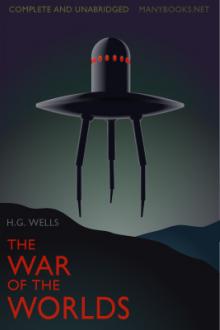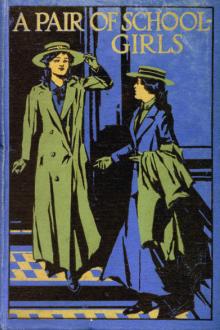Genre Fiction. Page - 296

, if not before. It is said thatDeucalion and Pyrrha created men by throwing stones over their headsbehind them:--
Inde genus durum sumus, experiensque laborum,
Et documenta damus qua simus origine nati.
Or, as Raleigh rhymes it in his sonorous way,--
"From thence our kind hard-hearted is, enduring pain and care,Approving that our bodies of a stony nature are."
So much for a blind obedience to a blundering oracle, throwing thestones over their heads behind them, and not seeing where they fell.
Most men, even in this comparatively free country, through mereignorance and mistake, are so occupied with the factitious cares andsuperfluously coarse labors of life that its finer fruits cannot beplucked by them. Their fingers, from excessive toil, are too clumsyand tremble too much for that. Actually, the laboring man has notleisure for a true integrity day by day; he cannot afford to sustainthe manliest relations to men; his labor would be depreciated in thema

o recall some of the mental habits of those departed days. At most terrestrial men fancied there might be other men upon Mars, perhaps inferior to themselves and ready to welcome a missionary enterprise. Yet across the gulf of space, minds that are to our minds as ours are to those of the beasts that perish, intellects vast and cool and unsympathetic, regarded this earth with envious eyes, and slowly and surely drew their plans against us. And early in the twentieth century came the great disillusionment.
The planet Mars, I scarcely need remind the reader, revolves about the sun at a mean distance of 140,000,000 miles, and the light and heat it receives from the sun is barely half of that received by this world. It must be, if the nebular hypothesis has any truth, older than our world; and long before this earth ceased to be molten, life upon its surface must have begun its course. The fact that it is scarcely one seventh of the volume of the earth must have accelerated its cooling to the temperature a

down and wrote out a prescription,and folded it up and gave it me, and I put it in my pocket and went out.
I did not open it. I took it to the nearest chemist's, and handed it in.The man read it, and then handed it back.
He said he didn't keep it.
I said:
"You are a chemist?"
He said:
"I am a chemist. If I was a co-operative stores and family hotelcombined, I might be able to oblige you. Being only a chemist hampersme."
I read the prescription. It ran:
"1 lb. beefsteak, with1 pt. bitter beerevery 6 hours.1 ten-mile walk every morning.1 bed at 11 sharp every night.And don't stuff up your head with things you don't understand."
I followed the directions, with the happy result - speaking for myself -that my life was preserved, and is still going on.
In the present instance, going back to the liver-pill circular, I had thesymptoms, beyond all mistake, the chief among them being "a generaldisinclination to work of any kind."
What I suffer in that way no

ll times. A year seems very long to wait before I see them, but remind them that while we wait we may all work, so that these hard days need not be wasted. I know they will remember all I said to them, that they will be loving children to you, will do their duty faithfully, fight their bosom enemies bravely, and conquer themselves so beautifully that when I come back to them I may be fonder and prouder than ever of my little women." Everybody sniffed when they came to that part. Jo wasn't ashamed of the great tear that dropped off the end of her nose, and Amy never minded the rumpling of her curls as she hid her face on her mother's shoulder and sobbed out, "I am a selfish girl! But I'll truly try to be better, so he mayn't be disappointed in me by-and-by."
"We all will," cried Meg. "I think too much of my looks and hate to work, but won't any more, if I can help it."
"I'll try and be what he loves to call me, 'a little woman' and not be rough and wild, but do my duty here instead of wanting to

easy to draw out, though he can be communicative enough when the fancy seizes him."
"I should like to meet him," I said. "If I am to lodge with anyone, I should prefer a man of studious and quiet habits. I am not strong enough yet to stand much noise or excitement. I had enough of both in Afghanistan to last me for the remainder of my natural existence. How could I meet this friend of yours?"
"He is sure to be at the laboratory," returned my companion. "He either avoids the place for weeks, or else he works there from morning to night. If you like, we shall drive round together after luncheon."
"Certainly," I answered, and the conversation drifted away into other channels.
As we made our way to the hospital after leaving the Holborn, Stamford gave me a few more particulars about the gentleman whom I proposed to take as a fellow-lodger.
"You mustn't blame me if you don't get on with him," he said; "I know nothing more of him than I have learned from meeting him occasionally i

Green, by one highwayman, who despoiled the illustrious creature in sight of all his retinue; prisoners in London gaols fought battles with their turnkeys, and the majesty of the law fired blunderbusses in among them, loaded with rounds of shot and ball; thieves snipped off diamond crosses from the necks of noble lords at Court drawing-rooms; musketeers went into St. Giles's, to search for contraband goods, and the mob fired on the musketeers, and the musketeers fired on the mob, and nobody thought any of these occurrences much out of the common way. In the midst of them, the hangman, ever busy and ever worse than useless, was in constant requisition; now, stringing up long rows of miscellaneous criminals; now, hanging a housebreaker on Saturday who had been taken on Tuesday; now, burning people in the hand at Newgate by the dozen, and now burning pamphlets at the door of Westminster Hall; to-day, taking the life of an atrocious murderer, and to-morrow of a wretched pilferer who had robbed a farmer's boy of s

specially those of the Middle and Lower Thirds, seemed to enjoy the importance of owning something which it was in their power to withhold.
"I'm waiting till I've heard what you all six have to say for yourselves," said Kitty Palgrave condescendingly. "I shan't make up my mind until the very last minute."
"It's so difficult to choose between you," added Ellie Simpson, a pert little person of twelve.
Their tone verged on the offensive, and in any other circumstances Dorothy would have administered a snub. As it was, she pocketed her pride, and merely said she hoped they would remember her. She heard them snigger as she turned away, and longed to go back and shake them; but discretion prevailed.
"One has to put up with this sort of thing if one wants to get returned Warden," she reflected. "All the same, it's sickening to be obliged to truckle to young idiots like that."
She had not by any means found all the possible voters, so she decided to return to the Juniors' Common Roo

me here as I stand. Shoot again, Umlilwane--shoot again, if you dare. Hau! Hear my `word.' You have slain my dog--my white hunting dog, the last of his breed--who can outrun every other hunting dog in the land, even as the wind outstrippeth the crawling ox-wagon, and you have shed my blood, the blood of a chief. You had better first have cut off your right hand, for it is better to lose a hand than one's mind. This is my `word,' Umlilwane--bear it in memory, for you have struck a chief--a man of the House of Gcaleka."
[Umlilwane: "Little Fire"--Kafirs are fond of bestowing nicknames. This one referred to its bearer's habitually short temper.]
"Damn the House of Gcaleka, anyway," said Carhayes, with a sneer as the savage, having vented his denunciation, stalked scowlingly away with his compatriots. "Look here, isidenge," [fool], he continued. "This is my word. Keep clear of me, for the next time you fall foul of me I'll shoot you dead. And now, Eustace," turni

is one of the most common of errors, and one of the most difficult to avoid, while their right use gives to style cohesion, firmness, and compactness, and is an important aid to perspicuity. To the text of the synonyms is appended a set of Questions and Examples to adapt the work for use as a text-book. Aside from the purposes of the class-room, this portion will be found of value to the individual student. Excepting those who have made a thorough study of language most persons will discover with surprise how difficult it is to answer any set of the Questions or to fill the blanks in the Examples without referring to the synonym treatment in Part I., or to a dictionary, and how rarely they can give any intelligent reason for preference even among familiar words. There are few who can study such a work without finding occasion to correct some errors into which they have unconsciously fallen, and without coming to a new delight in the use of language from a fuller knowledge of its resources and a clearer sense

angry. But his strength ebbed, his eyesglazed, and he knew nothing when the train was flagged and the twomen threw him into the baggage car.
The next he knew, he was dimly aware that his tongue was hurtingand that he was being jolted along in some kind of a conveyance.The hoarse shriek of a locomotive whistling a crossing told himwhere he was. He had travelled too often with the Judge not toknow the sensation of riding in a baggage car. He opened hiseyes, and into them came the unbridled anger of a kidnapped king.The man sprang for his throat, but Buck was too quick for him.His jaws closed on the hand, nor did they relax till his senseswere choked out of him once more.
"Yep, has fits," the man said, hiding his mangled hand from thebaggageman, who had been attracted by the sounds of struggle."I'm takin' 'm up for the boss to 'Frisco. A crack dog-doctorthere thinks that he can cure 'm."
Concerning that night's ride, the man spoke most eloquently forhimself, in a l